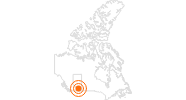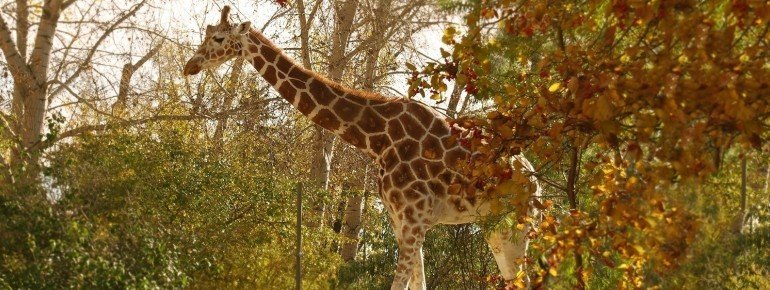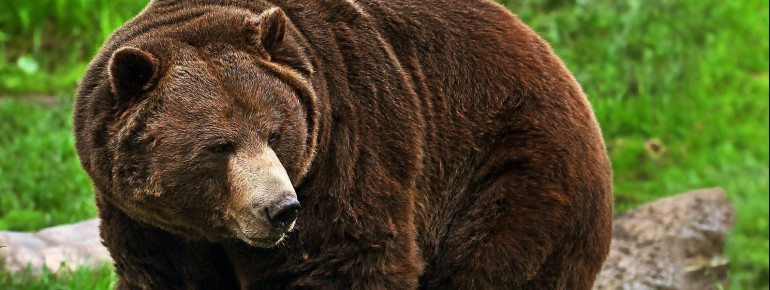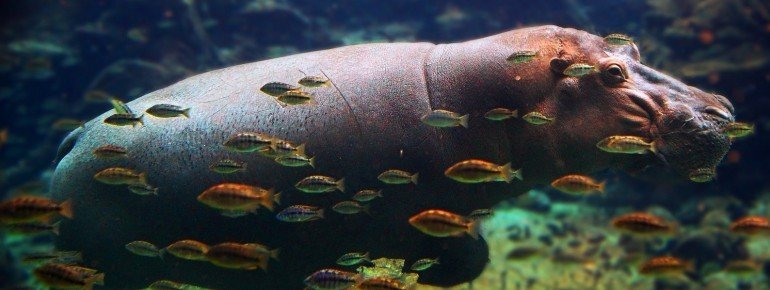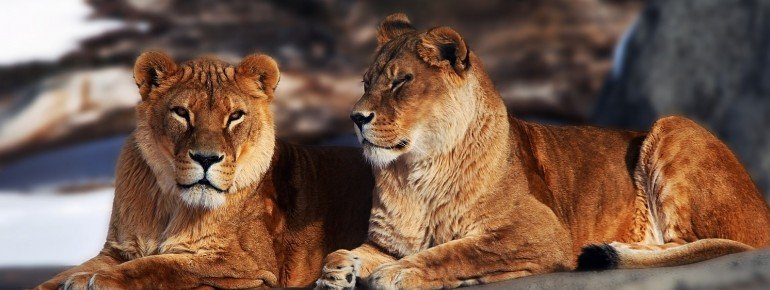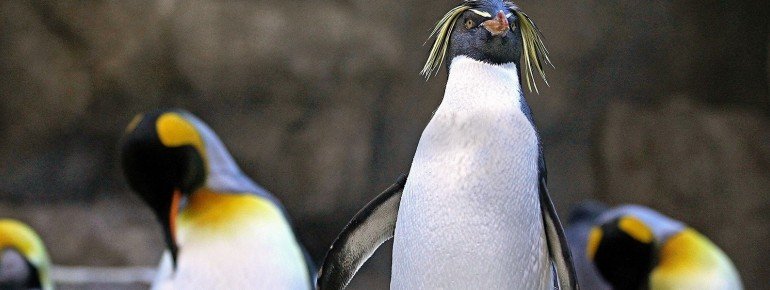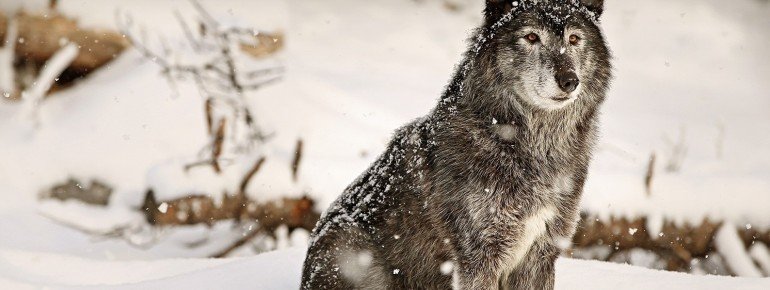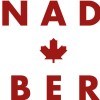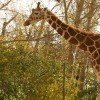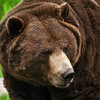Contents
Description
Into the Canadian wild
Canada is home to a variety of indigenous species and thus many Canadian animal parks try to keep a representative number of domestic animals as possible. In the 1990s, the zoo already had a huge range of North American birds and mammals to offer, spanning a variety from cranes to North American reindeer through to full-grown Grizzly bears. This part is thematically subdivided into the woodland around Aspen, the northern forests of Canada and, last but not least, the Rocky Mountains, allowing each species to be kept in a replica reminiscent of their original natural habitat.
Africa: A vast land
A further area was added to the zoo in 2003: the African Park, extending across an area containing four major buildings and a very own tropical rain forest as well as a replica of the African savannah. While the 2,900m² (0.29ha) large tropical forest has a multitude of exotic flowers and plants growing on its moist and fertile soil, the rather dry savannah, on the other hand, is home to hippos, giraffes, snakes, lions and gorillas. The dry grassy landscape of the savannah is the perfect habitat for these animals. At Calgary Zoo, species-appropriate husbandry is guaranteed.
A swimming-pool for our hippos
Inside the building, you find a large pool provided for our lovely hippos. The pool contains a total of 340.000l. Hippos love being in water and visitors may watch them splash to their heart's content. During the summer season, a gate connects this segment with the rest of the park, unifying the African section of the zoo to a large entity.
On a journey with penguins
In spring 2012 the zoo got a brand new separate and exclusive area for its penguins. Here you may watch the little Humboldt penguins sliding through water pools as well as the bigger ones on their daily marches. Appropriate to the respective required habitats of each penguin species, the zoo contains both indoor and outdoor areas, making the penguins feel comfy.
Back to the future
Apart from further botanic gardens and other themed parts, the zoo has also an area presenting the prehistory of our planet. You may take a glance at life-size replicas of dinosaurs, placed amidst look-alike natural surroundings of that time. In addition, you have the chance to see more than a hundred contemporary peer dinosaurs, among which one finds the Tyrannosaurus Rex of course. Being here makes you feel the meaning of life in prehistoric times.
Historical Information
The original areal of Calgary Zoo was confined to the area of St. George's Island, which was also the first park in Calgary and understandably frequently used by inhabitants of the city. The first exotic animals, then, came to the island in 1917. Originally, Calgary Zoo was initiated by the Calgary Zoological Society and officially opened the zoo in 1929 amidst the Bow River.
Ever since the zoo was founded, it was flooded several times, unfortunately. The Bow River overflew its banks for the first time in 1929 and has also remained risky to live next to even today. The last time the compounds were flooded was in 2013. Many animals did not survive the floods, among which were several exotic fish of the aqua world, four peacocks and a pot-bellied pig. Despite of permanently being exposed to the dangers of floods, the zoo's executives are currently planning a complete restoration of the zoo in the course of the next 20 years in order to renovate the numerous damages caused by these natural catastrophes.
Interesting facts
- Calgary Zoo is among the 3 best rated Tourist Attractions in Canada.
How to get there
By car
To get to the zoo, one first needs to head for Calgary of course. Using the Queen Elizabeth II Highway (QE2) will take you straight to Calgary, coming from the northern or southern direction.
Coming from other parts of Canada, it's best to use the Trans-Canada Highway, which stretches along the Canadian west coast into the eastern parts of the country. Calgary can be reached within 2 ½ hours, starting at the United States border. From the capital of Alberta, Edmonton, Calgary centre is a 3 hours drive away.
Once in Calgary, you head towards the east of the city, where you find the zoo sited directly at the Bow River. Following the Memorial Drive towards the eastern direction, you get to the Zoo Road where the zoo is located.
The zoo has two car parks. One is between the northern entrance and St. George's Drive, while the other one is at the western end of St. George's Island. The parking fees for an entire day are CAD 7.00 per vehicle.
By national public transport
By bus
In the west part of the centre, there is a Greyhound bus stop, which is a destination from many North American cities calling at Calgary. In addition, Red Arrow buses operate between Edmonton, Red Deer and Calgary.
By train
There are several possibilities to travel to Calgary across the country by train. This means of transport is particularly recommendable if you want to experience breath-taking Canadian landscapes out of your train window.
By local public transport
Once in Calgary, you can easily reach Calgary Tower by public transport. Just take the Northeast Line, using line 202, and get off at the stop “Zoo”.
By bicycle
If you wish to pay a visit to Calgary Zoo whilst on a cycling tour, you use the Bow River Pathway to get here.
By plane
Calgary has an international airport, so check out your airlines of trust whether they offer flights directly to Calgary. The airport is located in the north of Calgary, which is only a 20 minutes drive away from the city centre.
